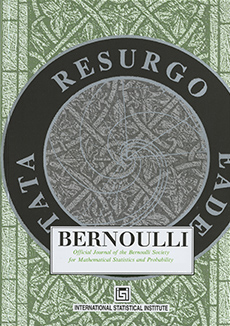Abstract
We consider the estimation of the transition matrix of a hidden Markovian process by using information geometry with respect to transition matrices. In this paper, only the histogram of k-memory data is used for the estimation. To establish our method, we focus on a partial observation model with the Markovian process and we propose an efficient estimator whose asymptotic estimation error is given as the inverse of projective Fisher information of transition matrices. This estimator is applied to the estimation of the transition matrix of the hidden Markovian process. In this application, we carefully discuss the equivalence problem for hidden Markovian process on the tangent space.
Acknowledgements
The author is very grateful to Professor Takafumi Kanamori, Professor Vincent Y. F. Tan, and Dr. Wataru Kumagai for helpful discussions and comments. The works reported here were supported in part by Guangdong Provincial Key Laboratory (Grant No. 2019B121203002), the JSPS Grant-in-Aid for Scientific Research (B) No. 16KT0017, (A) No. 17H01280, the Okawa Research Grant and Kayamori Foundation of Informational Science Advancement.
Citation
Masahito Hayashi. "Information geometry approach to parameter estimation in hidden Markov model." Bernoulli 28 (1) 307 - 342, February 2022. https://doi.org/10.3150/21-BEJ1344
Information





